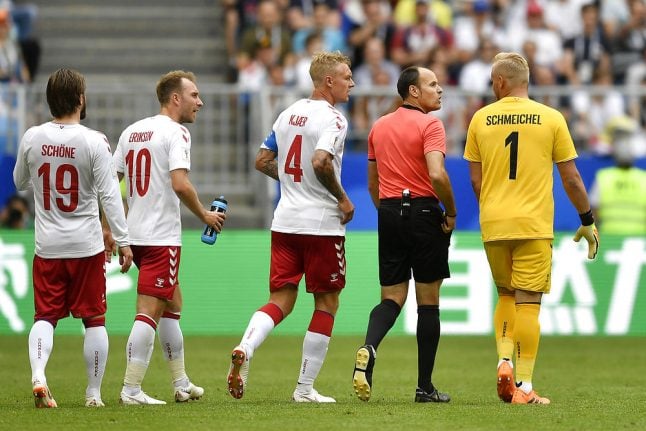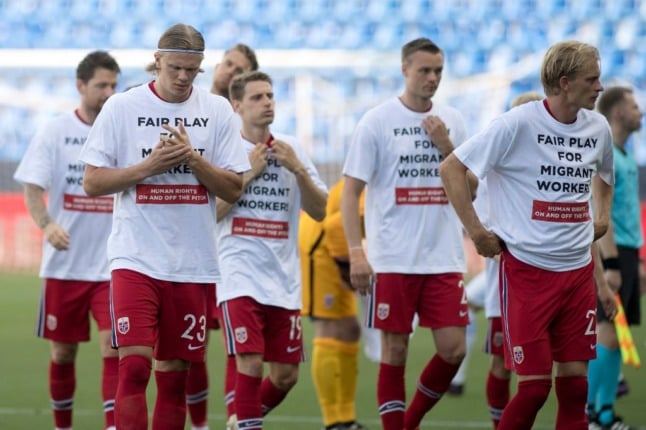Australia battled back impressively in Samara after Christian Eriksen's sweetly-struck half volley, before Denmark faded badly in the second half.
The result leaves Denmark on four points and Australia with just a single point after two games apiece.
With seven minutes gone, Tottenham midfielder Eriksen showed sublime technique to finish after Nicolai Jørgensen's neat lay-off in the area.

Christian Eriksen wheels away after scoring Denmark's opener. Photo: AP Photo/Gregorio Borgia/Ritzau Scanpix
Eriksen's early opener was a body blow for Australia but they were given a lifeline when an outswinging corner seemed destined for the head of Hertha Berlin winger Mathew Leckie but came off the arm of Yussuf Poulsen.
The Leipzig front man had been Denmark's hero with the matchwinner against Peru but was adjudged to have handled the ball and the referee consulted the Video Assistant Referee system before pointing to the spot.
Jedinak, who had scored a penalty in Australia's first match against France, stepped up to fire past goalkeeper Kasper Schmeichel in the 38th minute.
Eriksen's free kick caused mayhem in the box just minutes later, with Mat Ryan collecting in relief after the ball came off the leg of Trent Sainsbury a yard from the goal-line.
Denmark can consider themselves unfortunate not to have had a penalty appeal of their own referred to VAR early in the second half when Poulsen appeared to be shoved in the area.
The Socceroos were quickly into their stride after the restart, only for Pione Sisto to curl just wide of Ryan's goal.
Yet Australia gained confidence during a second period that saw Aaron Mooy and late substitute Danel Arzani go close.
Fans watching live broadcasts in Denmark became increasingly agitated as the game went on, with a number of 50-50 decisions perceived as being given in favour of the Australians.
Tension at Tivoli #Copenhagen #DANAUS #FifaWorldCup2018 pic.twitter.com/UiHazBmv6s
— Michael Barrett (@MLBarrett15) June 21, 2018
Denmark now need at least a draw from their final game against group favourites France to be assured of progression to the knock-out stages.
READ ALSO: More on Denmark in the World Cup



 Please whitelist us to continue reading.
Please whitelist us to continue reading.